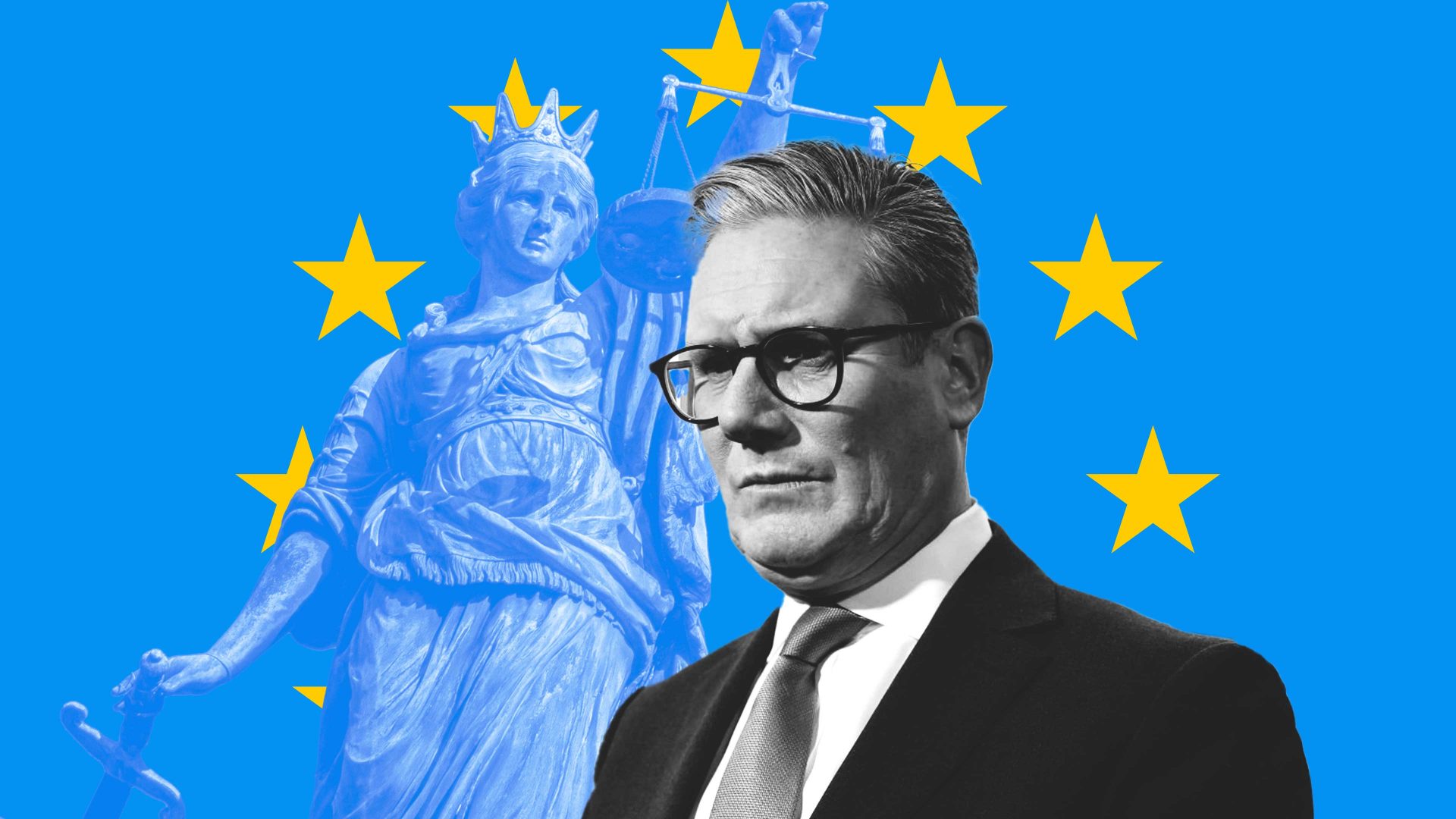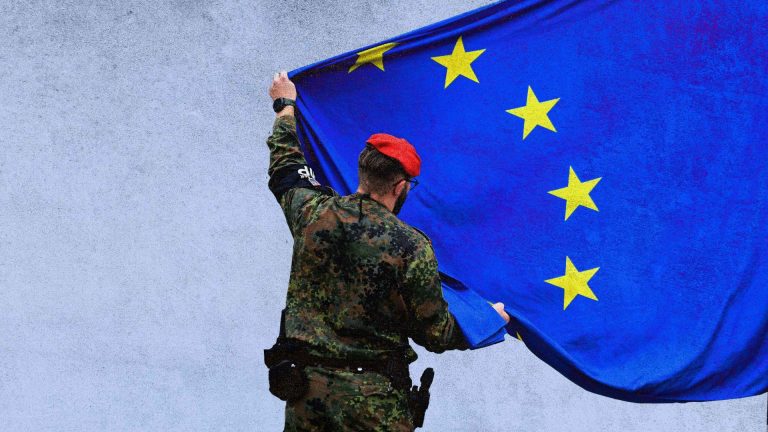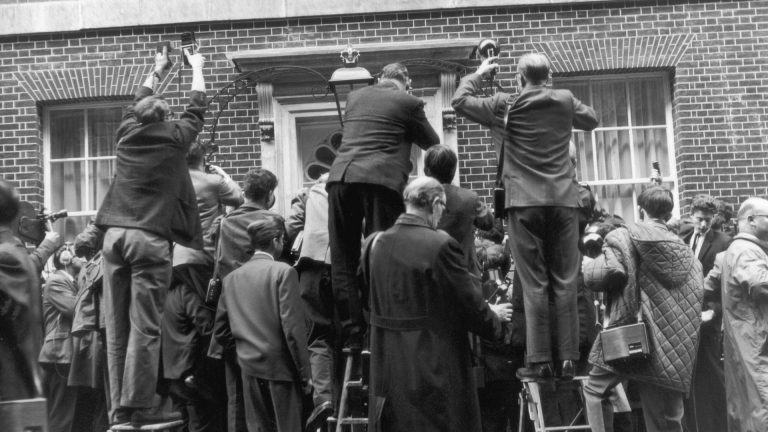For at least half a century, Labour has followed wherever the Conservative Party has gone on Europe, strange as that might sound.
In the mid-1970s, the Tories were largely united on wanting to join the European Economic Community, the precursor to the EU, while Labour was much more divided. By the 1990s, Labour was largely united as a pro-EU political party, watching the Conservatives publicly unspool over their Europe divisions – a decades-long fight that culminated in the Brexit referendum, nine years ago.
Following that referendum, though, Boris Johnson eventually reconstituted the Conservatives as a party united against EU membership, which voted unanimously for his deal – while Labour battled huge internal divisions among its MPs and voters alike on the referendum, which split the party almost down the middle.
In 2025, we are in something of a bizarro-world in which the parliamentary Labour Party at least is nominally committed to “making Brexit work”, or at least to limiting its damage: there is no parliamentary lobby for rejoin within the party. Johnson united his party in favour of Brexit. A few years later, Starmer has done the same.
This 50-year pattern on Europe makes the trend of another European issue particularly significant. Over the last decade, the mood in the Conservative Party has shifted more and more against the European Convention on Human Rights, with voices in the party calling on the UK to leave growing all the louder.
Suggested Reading

This is what it means to be European
Until recently, Labour had seemed united in standing up for the convention, but a few voices in the party – particularly from its small but influential Blue Labour grouping – are calling for an exit from the convention.
And in a move oddly redolent of David Cameron’s decision to pursue a renegotiation of the terms of the UK’s terms of membership in the European Union, Keir Starmer’s government is looking to make changes to the operation of the ECHR. Cameron hoped that by securing a ‘better’ deal on EU membership, he could settle the issue for a generation. We all know how that ended. Are Starmer’s efforts on the ECHR doomed to a similar, spectacular, failure?
What is the European Convention on Human Rights?
Most discussion of the ECHR tends to skip past this question, but it’s impossible to meaningfully talk about the debate inside Labour – or what the government thinks it’s doing with its proposals – without being clear what the convention is, and isn’t.
The European Convention on Human Rights is a binding international human rights agreement with 46 signatories, notably every country in Europe except Russia (more on this later) and Belarus. This is significantly broader than European Union membership, as it is overseen by the Council of Europe. The convention rights are ultimately enforced by the European Court of Human Rights, which is an entirely separate body to the EU’s top court, the European Court of Justice.
Russia is the only country that was once a signatory to the ECHR, but it is no longer, and this withdrawal wasn’t by choice. Instead, Russia was expelled from the Council of Europe following its full-scale invasion of Ukraine in 2022. Obviously, this doesn’t set a great precedent in terms of withdrawal.
In practical terms, the rights protected by the convention – which include the right to free expression, to privacy, to family life, freedom from torture, and more – are incorporated into UK law through the Human Rights Act. That means the UK parliament voted for and approved making these rights British law, and when judges interpret human rights law, it’s the K law to which they turn.
What the Convention does is add the right to appeal beyond the Supreme Court if someone thinks their rights have been breached and UK courts have got it wrong. Given that the state has the most power to interfere with our freedoms, the international court is seen as an important safeguard.
Withdrawing from the ECHR would come with significant practical political issues for the UK, too. The Good Friday Agreement is predicated on the ECHR, with the option for affected parties to access the court if it is breached. In turn, deals settling the status of the border between Northern Ireland and Ireland are built on that foundation. Leaving the ECHR would risk collapsing a decades-old peace deal and a fragile Brexit border deal at the same time – with knock-on effects for the wider UK-EU relationship.
What’s the case against the ECHR?
Most of the arguments against the convention come down to immigration. A subgroup of Brexiteers, including Dominic Cummings himself, have argued for years that “human rights lawyers” were stopping the government from doing what was necessary to crack down on small boat crossings, or to deport criminals born overseas.
This is backed up by a years-old media narrative that highlights every occasion on which a judge refuses to deport someone based on “human rights”, and these are often seized upon by politicians. Theresa May infamously claimed that she “was not making this up” when she told an audience someone’s deportation had been stopped because he had a cat (the actual case, unsurprisingly, was much more complex than that).
As attitudes on immigration in the UK have hardened, the mainstream position has shifted: Reform now explicitly wants to leave the ECHR, Kemi Badenoch is launching a policy review of ECHR membership, and Tory leader-in-waiting Robert Jenrick explicitly wants to leave it. Most promise some form of a “British bill of rights” to replace it, though few give any details on what rights in the existing Human Rights Act wouldn’t make the cut.
So, what gives with Labour?
For most of the last decade, the standard liberal position has been to fact-check stories about exaggerated human rights law cases and to suggest that the human rights laws as they exist broadly work – and this is still largely the approach.
The issue is that Keir Starmer, and some in his inner circle, are no longer convinced it’s entirely true. The prime minister seems to believe the problem goes beyond a few tabloid headlines. “Keir has worked as a human rights lawyer for a very long time,” one veteran lawyer in the Labour movement noted. “He’s not about to try to overhaul the law based on how the Daily Mail characterises it.”
Policy experts and lawyers generally sympathetic to the ECHR – and adamant the UK should stay in the convention – think that No 10 has become convinced that the way UK judges interpret Article 8 of the convention (the right to private and family life) is much stricter than the convention ever intended, and is interfering with deportations that should be straightforward.
The public isn’t being misled by the media over these cases, to this view: the courts are making decisions that just don’t chime either with public opinion or the actual intent of the convention. The insiders are somewhat divided on whether No 10 is correct on this – a few self-proclaimed “lefty liberals” will privately admit they agree, though none wanted to associate themselves with that view – but they believe this is what is driving the push for reform.
The government is said to be trying two approaches. One is to amend or clarify domestic UK law to narrow the scope of Article 8 as it applies to immigration cases, to try to restrict the range of options available to judges – whose job is to apply the law as passed by parliament. This would, in theory at least, be fairly easy to achieve given the government’s sizeable majority.
Another is to push for some reforms of the ECHR internationally, at the Council of Europe, with the UK making the case that amending the ECHR is essential to protecting it and making sure efforts to undermine it, or for countries to withdraw from it, fail. The difficulty here is that the Council of Europe is an extremely clunky and slow-moving institution. Getting meaningful reforms here are even more difficult than getting consensus in the UK.
Both approaches risk falling into the same trap as David Cameron’s EU new deal before the referendum – bringing the issue to a much greater level of public attention and then delivering changes that seem underwhelming.
No 10’s best-case scenario is that it quietly manages to tweak the operation of the ECHR in such a way that leads to fewer headlines about “human rights lawyers” frustrating the government on immigration, without a huge public row on the way.
Starmer and his team evidently believe such a thing is possible. But 50 years of British and European history suggests the task may be far more difficult than he thinks.












